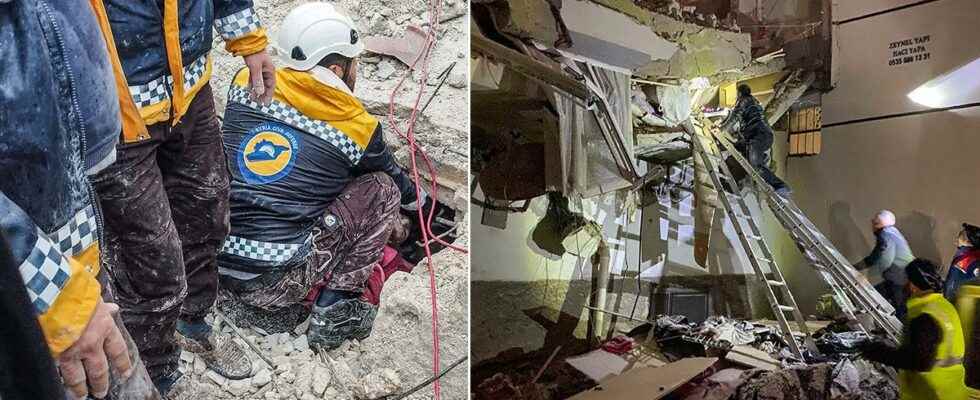Published: Just now
The clock is ticking in the rescue work after the earthquake that hit Turkey and Syria.
Now, people stuck under the ruckus in footage are sounding the alarm on social media, and the biggest threat is the cold.
– If you are injured and are under the rubble, you are extremely vulnerable and can freeze to death, says Johan von Schreeb, professor of global disaster medicine.
As morning dawns in Turkey, families, neighbors and rescue workers desperately search for survivors after the earthquake.
– People are scared and shocked, there is chaos, confusion and anxiety. People are out on the streets because they cannot return to their houses, says Gabriel Karlsson, who works at the Red Cross in Damascus, Syria.
Hundreds are reported dead and several thousands injured.
Videos are now circulating on social media of people who are stuck and looking for help. In one of the films, two people are seen lying on a minimal surface under the racial masses. They write the address they are at and that they are near a hotel.
“Sister, we are in a very bad situation. Look at the roof, the roof is on us. We are under all the pipes, everything is on us.
Another person posted a video of him talking to his son.
“Show me your hand, we will save you”
On the film, a hand can be seen sticking up between the heavy concrete blocks.
72 critical hours
The rescue work is a race against time, and one of the biggest threats is the cold. According to Gabriel Karlsson who works at the Red Cross in Damascus, Syria, the next 72 hours are absolutely crucial.
– These hours are very important, it is now that we can try to save as many lives as possible. It is cold in Syria, it is raining and people who are under the racial masses are waiting for help.
Even Johan von Schreeb, professor of global disaster medicine, says that the cold is the biggest threat.
– The body cannot cope with the cold. You have to get to field hospitals where you can get warm, otherwise you can’t operate, otherwise people die from the cold. That is the imminent threat, says Johan von Schreeb, professor of global disaster medicine.
But the rescue work has many challenges, the streets are filled with people and cars, which delays the rescue work, says Gabriel Karlsson.
– Resources are scarce. We hope the response will correspond to the disaster the country experienced. Syria is already under really tough sanctions, there’s a shortage of fuel, there’s a shortage of electricity and it’s hard for us to even get the ambulances to go out.
“An interesting political situation”
MSB has received a request to help, and Foreign Minister Tobias Billström has extended his hand to Erdogan and says Sweden can help with what is needed.
– It is an interesting political situation, where Sweden may have the chance to do something good, says Johan von Schreeb.
What Sweden can help with is building infrastructure and heating tents so people can keep warm. He himself has contact with the WHO and is himself on standby to go down to the site, to work with coordination. Considering that the area has been affected by conflicts, there are already some problems with supplies.
– It is important that there are not a hundred different actors, but that you work together. That is the big challenge – it becomes so chaotic and nobody knows who is in charge. Then the work is duplicated and the quality is poor.
